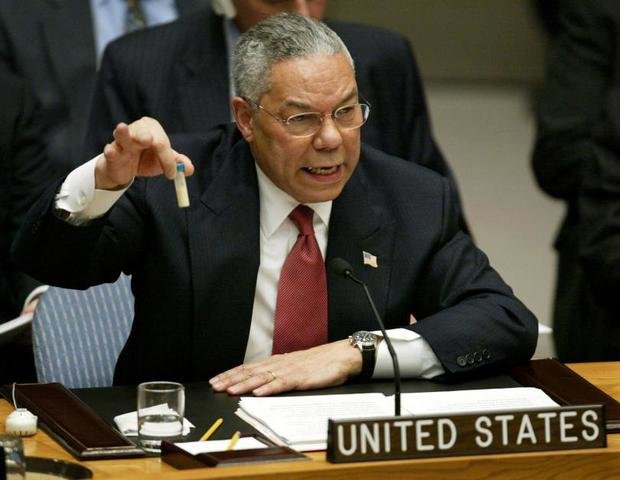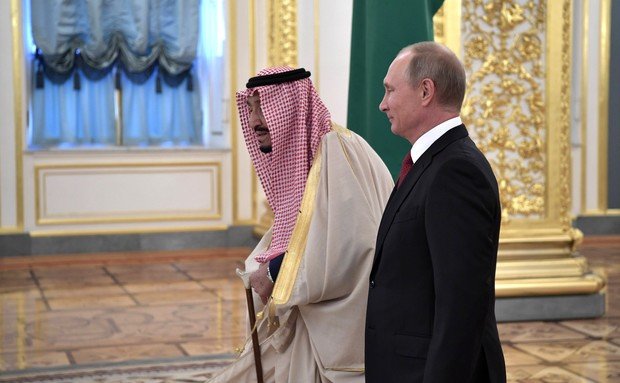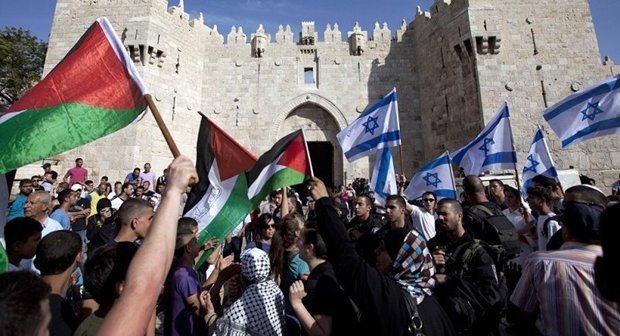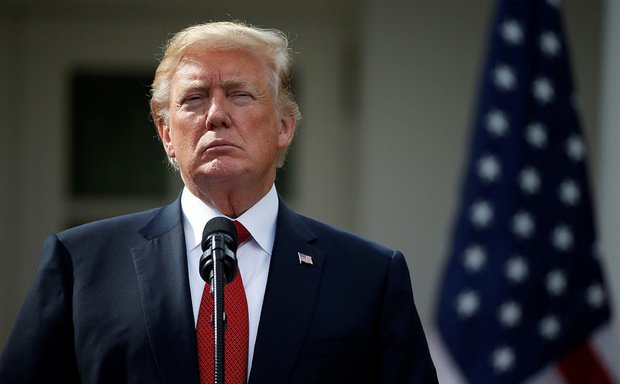''The Palestinian-Israeli conflict took a back seat because of the events in Syria''
A meeting with expert in Islamic studies and Arabist Vitaly Naumkin where regulation prospects were discussed was held at Kazan Federal University
A meeting of the Tatarstan media with famous expert in Eastern studies, research adviser of the Institute of Eastern Studies of the Russian Academy of Sciences and Islamica International Coordination Centre Vitaly Naumkin took place in Kazan Federal University's Institute of International Relations, History and Eastern Studies on 16 April. Numkin arrived in Kazan to discuss the development of Islamic education in Russia and, particularly, the creation of the Situation Centre to quickly monitor, analyse and evaluate a situation in the Muslim community. Director of the KFU Institute of International Relations, History and Eastern Studies Ramil Khairutdinov welcomed the media representatives on behalf of KFU. Realnoe Vremya's correspondent asked the famous Russian Arabist and expert in Islamic studies several questions.
''Autarky in the economy is impossible. We need international cooperation''
The Kazan visit of the research adviser of the Institute of Eastern Studies of the Russian Academy of Sciences was held under a general impression of the USA and its allies' recent strikes on Syria. This is why all journalists who gathered at the meeting agreed it was the key topic. Vitaly Naumkin's position in this respect isn't different from the official Russian position, which has been announced by diplomats and experts many times:
''It's a sad event. It's very serious violation of international law. It's hooliganism and crime. Though Americans think it was done as accurate as possible because no person has died as a result of this strike. They think they destroyed the places where chemical weapons had been supposedly stored. We say there weren't any chemical weapons there, it all is a lie. We know how many times they've lied. We remember 2003 when they shook a test tube with a chemical weapon, which Saddam Hussein presumably possessed. It's a repetition of the old scenario, they haven't invented anything new. Now the pressure on Syria will go on, which complicates the road to peace and political process and fulfilment of the UN Security Council Resolution 2254, which we signed together with western partners.
It's a reason for sanction pressure on our country. Americans promise to publish a new list of the companies that will be imposed sanctions again. All what's happening is rather against us than Syria. It's pressure on us. They want to complicate powerful movement of our country forward, from an economic, military and strategic perspective, to limit the sphere of our influence, strike on our friends and our partners. This is pressure, which is difficult to resist but still possible because the truth is on our side.

''Autarky in the economy is impossible. We need international cooperation. Americans strike right on this area,'' thinks the expert.
Meanwhile, Naumkin categorically disagrees with hotheads of the Russian side who sometimes urge to shift the Russian economy to full self-sufficiency.
To pray for Chechnya contingent in Syria
In Vitaly Naumkin's opinion, Russia's forte is that Russian diplomacy knows how to dialogue simultaneously with different conflicting sides. This is manifested in the case of such irreconcilable antagonists as Iran and Israel, Turkey and Kurdish political forces, Qatar and its opponents from the Persian Gulf countries and the Arab world. Even supporting Bashar Assad's government in Syria, Russian diplomacy keeps in touch with representatives of the opposition.
Despite numerous contradictions, cooperation with even Saudi Arabia develops, which was illustratively manifested during King Salman bin Abdulaziz Al Saud's visit to Moscow last autumn.
''The Saudis keep on defending the anti-Assad position. But their support of radical groups went down. We have an agreement to support our initiatives to create de-escalation. It affects even Qatar to a certain degree. Qatar helped more radical groups in the Syrian opposition movement. And the wave has also decreased a bit,'' Vitaly Naumkin characterised Russia's achievements in answer to Realnoe Vremya's question.

The participation in international initiatives of Russian regions, which are historically linked with the world of Islam such as Tatarstan, Chechnya Republic and Dagestan, was highly estimated by the expert. The participation at this stage doesn't come to diplomacy and economy only. ''The military position, which is in Syria now, is mainly Chechnya contingent. We just can pray for it. Great guys, there is nothing to add,'' thinks Naumkin.
But not everything on the international stage inspires the research adviser of the Institute of Eastern Studies optimism. There are much more reasons for realism:
''As for our positions in the Islamic world, it's uneasy to work. The League of Arab States hasn't supported Syria now. There is powerful pressure of the West, there is powerful pressure of conservative countries that look at the West. It's the reality, and we shouldn't have any illusions here that we will get some support everywhere. But when talking with people and political activists, it's seen the sympathies of many of those who don't want or who are afraid to open their mouth are on our side, in fact.''
Why Trump is worse than Obama
The Syrian conflict doesn't develop separately from other hot points existing in the Middle East. As Vitaly Naumkin said answering Realnoe Vremya's correspondent's question, the prolongation of the situation in Syria could affect further escalation of the oldest Arab-Israeli conflict:
''The Palestinian-Israeli conflict, unfortunately, took a back seat because of the events happening in Syria. The attention of world politics is focused on Syria. The group of ''hawks'', which is the extreme right wing of the Israeli establishment surrounded by Trump, takes advantages of it. They rush to solve the problem in favour of Israel faster, so that there won't be any chance to create a Palestinian state.

Big international efforts are much needed today to solve this problem and save the very formula of the two countries (Editor's Note: Jewish and Arab states). So it would be possible to create the Palestinian state in an extended territory, not with dispersed enclaves, what these people surrounded by Trump headed by his son-in-law Jared Kushner would like. The fact that Trump recognised the move of Israel's capital to Jerusalem almost puts paid to the problem of Palestinian refugees. And this is very bad. Even not Israel but the right group of settlers (Editor's Note: Jewish settlers on Palestinian territories) who impose their own agenda isn't interested in this attempt to solve the problems.
I think in these conditions, Russia needs to offer its intermediary efforts to renew the peace process. Here our lasting friendly relations with Palestinians, on the one hand, and quite active relations with Israel can be in demand. Now the Palestinians are in a very critical state. Naumkin notices cardinal deviation of Donald Trump's Near Eastern policy from the line of normalisation of relations with Iran that Barack Obama pursued:
''Trump's positions are, firstly, anti-Iranian. Now the ''hawks'' who are ready to destroy Iran came – both John Bolton and Mike Pompeo. The same positions can be also called anti-Russian. And, on the other hand, it's a group that includes Kushner, Jason Greenblatt and others who would like to quickly do, so that there won't be any chance to solve the Palestinian problem fairly while all are busy with Syria's problems. The majority of settlers who would like the occupied territories to remain Israeli forever are interested in it. If a million of settlers live in Arab lands in 2-3 years, who will be able to get them back, in general? This will be impossible.

The Palestinians have different opinions. There are people who think they need to refuse the idea of the Palestinian state and go back to the idea of a single Jewish-Arab state where the Palestinians would be equal citizens. 6 million Jews and 6 million Arabs, one person is one voice. But this is unacceptable for Israel because what a Jewish state can be if you account for 50%? Or it will be apartheid then. The fight for these problems is ahead. There will be a very sharp fight and complicated alignment of forces in the short run.
Lebanon survived after the civil war, will Syria survive too?
Saying about the destroying potential of the Syrian conflict for the whole Middle East, Vitaly Naumkin quite emotionally answered the question asked by Realnoe Vremya's correspondent about existing plans to divide Syria into several states, for instance, Alawite Christian and Sunni zones:
''Let's divide the whole world into zones. Why necessarily Syria? There was a 15-year civil war in Lebanon, thank God, they didn't separate and live together. Though there was some migration of the population. If earlier Druzes lived together with Sunnis, now they live more compactly. But they still live together, and the country functions! The same thing is in Iraq. The same problems exist in Turkey. 20% of Kurds live in Turkey and can't solve their problem. And many Kurds say: ''Let's separate.'' So why should Syria be divided where the majority supports a single country? The Syrians should decide this themselves. Of course, the West would like to divide. Israel is interested in the division into mini-states and solution of its own problems. Because there have always been ''three whales'' in the Arab world: Egypt, Syria and Iraq. Iraq became weak now, it's clear what's happening to Syria, while Egypt is going through economic problems.
At the same time, the expert in Eastern studies perfectly realises it's not technically easy to achieve the country's unity. It refers to the Idlib Province and other territories where the opposition is concentrated as well as Kurdish territories that are under the spotlight of Turkey.

To borrow Algeria's experience and prohibit takfir
Apart from questions of Near Eastern politics, the discussion somehow mentioned problems inside Russia. Mufti Kamil Samigullin's initiative to legally prohibit the Wahhabi ideology was discussed. In this respect, Vitaly Naumkin offered to look at Algeria's experience where a person who has radical views can't become an imam after the bloody civil war. Naumkin stressed takfirism as a marker to detect radicals, that's to say, an accusation of their opponents in unbelief professed by extreme movements. It was told enough about the necessity to popularise the legacy of traditional Tatar Islam. As cooperation of KFU with the Institute of Eastern Studies of the Russian Academy of Sciences and Islamica International Coordination Centre constantly develops, it's not the first and the last meeting with Vitaly Naumkin in Kazan.